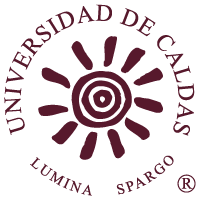| dc.contributor.author | Alvarado Marambio, José Tomás | spa |
| dc.date.accessioned | 2014-06-20 00:00:00 | |
| dc.date.available | 2014-06-20 00:00:00 | |
| dc.date.issued | 2014-06-20 | |
| dc.identifier.issn | 0124-6127 | |
| dc.identifier.uri | https://revistasojs.ucaldas.edu.co/index.php/discusionesfilosoficas/article/view/758 | |
| dc.description.abstract | El presente trabajo discute si la relación de ‘determinación’ ―esto es, la relación entre propiedades  determinables y determinadas― puede ser explicada por los defensores del nominalismo de semejanza y las ontologías de tropos. En ambos casos las características de la relación de determinación deben estar  fundadas en relaciones de semejanza primitivas ya sea entre objetos o entre tropos. Después de presentar  los principales requerimientos de la relación de determinación y tres teorías basadas en universales que  intentan explicarla, se argumenta que las concepciones basadas en semejanzas entre objetos o tropos deben postular conexiones necesarias primitivas no-económicas entre semejanzas, pero también ―lo que es más  grave― se argumenta que deben entender las clases de semejanza por las que son dadas las propiedades  determinables de un modo que no puede evitar los problemas tradicionales de la ‘comunidad imperfecta’ y  de la ‘compañía’. | spa |
| dc.description.abstract | The present work discusses whether the relation of ‘determination’ ―i. e. the relation between determinable  and determinate properties― can be explained by defenders of resemblance nominalism and trope  ontologies. In both cases, the characteristics of the relation of determination should be founded in primitive  resemblance relations either between objects, or between tropes. After presenting the main requirements of  the determination relation, and three theories based on universals that try to explain it, it is argued that  conceptions based on resemblances between objects or tropes should postulate uneconomical necessary  and primitive connections between resemblances, but also ―what is more serious― it is argued that they  should construe the resemblance classes by which determinable properties are given in a way that cannot  avoid the traditional problems of the ‘imperfect community’ and the ‘companionship’. | eng |
| dc.format.mimetype | application/pdf | spa |
| dc.language.iso | spa | spa |
| dc.publisher | Universidad de Caldas | spa |
| dc.rights | Derechos de autor 2014 Discusiones Filosóficas | spa |
| dc.rights.uri | https://creativecommons.org/licenses/by/4.0/ | spa |
| dc.source | https://revistasojs.ucaldas.edu.co/index.php/discusionesfilosoficas/article/view/758 | spa |
| dc.subject | Resemblance nominalism | eng |
| dc.subject | determinable properties | eng |
| dc.subject | determinate properties | eng |
| dc.subject | resemblance | eng |
| dc.subject | universals | eng |
| dc.subject | Nominalismo de semejanza | spa |
| dc.subject | propiedades determinables | spa |
| dc.subject | propiedades determinadas | spa |
| dc.subject | semejanza | spa |
| dc.subject | universales | spa |
| dc.title | Propiedades determinables, propiedades determinadas y semejanza | spa |
| dc.type | Artículo de revista | spa |
| dc.type | Sección Artículos | spa |
| dc.type | Journal Article | eng |
| dc.identifier.eissn | 2462-9596 | |
| dc.relation.citationendpage | 162 | |
| dc.relation.citationissue | 24 | spa |
| dc.relation.citationstartpage | 129 | |
| dc.relation.citationvolume | 15 | spa |
| dc.relation.ispartofjournal | Discusiones Filosóficas | spa |
| dc.relation.references | Armstrong, David M. Universals and Scientific Realism, Volume I: Nominalism and Realism. Cambridge: Cambridge University Press, 1978. Print. | spa |
| dc.relation.references | ---. Universals and Scientific Realism, Volume II: A Theory of Universals. Cambridge: Cambridge University Press, Print. | spa |
| dc.relation.references | ---. Universals. An Opinionated Introduction. Boulder: Westview, 1989. Print. | spa |
| dc.relation.references | ---. A World of States of Affairs. Cambridge: Cambridge University Press, 1997. Print. | spa |
| dc.relation.references | Bigelow, John and Robert Pargetter. Science and Necessity. Cambridge: Cambridge University Press, 1990. Print. | spa |
| dc.relation.references | Campbell, Keith. “The Metaphysic of Abstract Particulars”. Midwest Studies in Philosophy. 1981: 477-488. Print. | spa |
| dc.relation.references | ---. Abstract Particulars. Oxford: Blackwell, 1990. Print. | spa |
| dc.relation.references | Ehring, Douglas. Tropes. Properties, Objects, and Mental Causation. Oxford: Oxford University Press, 2011. Print. | spa |
| dc.relation.references | Fales, Evan. Causality and Universals. London: Routledge, 1990. Print. | spa |
| dc.relation.references | Funkhouser, Eric. “The Determinable-Determinate Relation”. Noûs. 2006: 548-569. Print. | spa |
| dc.relation.references | Goodman, Nelson. The Structure of Appearance. Indianapolis: BobbMerrill, 1966. Print. | spa |
| dc.relation.references | Johnson, William Ernest. Logic. Cambridge: Cambridge University Press, 1921. Print. | spa |
| dc.relation.references | Lewis, David. “New Work for a Theory of Universals”. Papers in Metaphysics and Epistemology. Cambridge: Cambridge University Press, 1999. Print. | spa |
| dc.relation.references | Lowe, Jonathan. The Four-Category Ontology. A Metaphysical Foundation for Natural Science. Oxford: Clarendon Press, 2006. Print. | spa |
| dc.relation.references | Manley, David. “Properties and Resemblance Classes”. Noûs. 2002: 75-96. Print. | spa |
| dc.relation.references | Moreland, James. Universals. Chesham: Acumen, 2001. Print. | spa |
| dc.relation.references | Maurin, Anna-Sofia. If Tropes. Dordrecht: Kluwer, 2002. Print. | spa |
| dc.relation.references | Prior, Arthur N. “Determinables, Determinates, and Determinants I”. Mind. 1949: 1-20. Print. | spa |
| dc.relation.references | ---. “Determinables, Determinates, and Determinants II”. Mind. 1949: 178-194. Print. | spa |
| dc.relation.references | Rodriguez-Pereyra, Gonzalo. Resemblance Nominalism. A Solution to the Problem of Universals. Oxford: Clarendon Press, 2002. Print. | spa |
| dc.relation.references | Searle, John. “Determinables and the Notion of Resemblance”. Proceedings of the Aristotelian Society. Supplementary Volume 33. 1989: 141-158. Print. | spa |
| dc.relation.references | Walter, Sven. “Determinates, Determinables, and Causal Relevance”. Canadian Journal of Philosophy. 2006: 217-243. Print. | spa |
| dc.relation.references | Williams, Donald C. “On the Elements of Being: I”. The Review of Metaphysics. 1953: 3-18. Print. | spa |
| dc.relation.references | Yablo, Stephen. “Mental Causation”. Thoughts. Philosophical Papers. Oxford: Oxford University Press, 2008. Print. | spa |
| dc.rights.accessrights | info:eu-repo/semantics/openAccess | spa |
| dc.title.translated | Determinable properties, determined properties and likeness | eng |
| dc.type.coar | http://purl.org/coar/resource_type/c_6501 | spa |
| dc.type.content | Text | spa |
| dc.type.driver | info:eu-repo/semantics/article | spa |
| dc.type.version | info:eu-repo/semantics/publishedVersion | spa |
| dc.relation.citationedition | Núm. 24 , Año 2014 : Enero - Junio | spa |
| dc.relation.bitstream | https://revistasojs.ucaldas.edu.co/index.php/discusionesfilosoficas/article/download/758/681 | |
| dc.type.coarversion | http://purl.org/coar/version/c_970fb48d4fbd8a85 | spa |
| dc.rights.coar | http://purl.org/coar/access_right/c_abf2 | spa |





